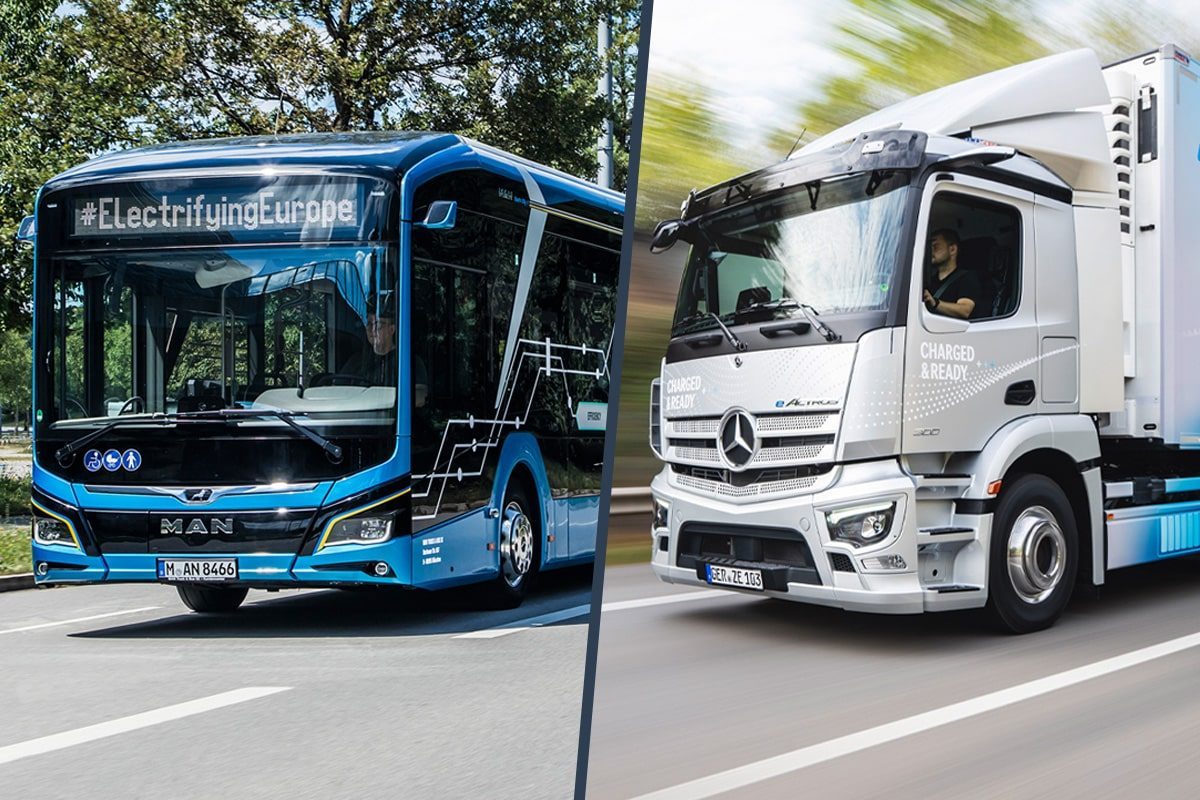Vote finalised: EU adopts stricter CO2 standards for trucks and buses
Specifically, it has now been decided that manufacturers must reduce the average emissions of trucks weighing 7.5 tonnes or more and coaches by 45% from 2030, 65% from 2035 and 90% from 2040. The CO2 emissions from 2019 will serve as a reference, and from 2035, the new regulations must also be complied with by so-called professional vehicles such as refuse collection and construction vehicles. Truck trailer manufacturers must also improve the emission values of trailers by 10 per cent by 2030. And: 90 per cent of new city buses must be emission-free by 2030 and 100 per cent by 2035.
The European Parliament paved the way for these new CO2 standards around a month ago. MEPs voted in favour of the proposal with 341 votes in favour, 268 against and 14 abstentions. The only thing missing was the approval of the European Council, which has now been given. The new regulation will now be signed and published in the Official Journal of the EU. It will enter into force 20 days after its publication.
Breakthrough in negotiations back in February
The agreed CO2 targets roughly correspond to the Commission’s original proposals and almost 1:1 to the provisional agreement between Parliament and Council, which signalled the breakthrough for the proposed new standards in February. One of the few changes to the original proposal from the beginning of 2023 is that the target for 100 per cent zero-emission buses is no longer 2030, but the EU is allowing five more years to achieve this goal.
The new regulations focus on the period from 2030. The existing target for 2025, according to which emissions from heavy goods vehicles weighing 16 tonnes or more must be reduced by 15%, remains unchanged. However, the target for 2030, which was 30 per cent under the old regulation and has now been raised to 45 per cent, has been tightened. The effectiveness and impact of the amended regulation will be reviewed by the Commission in 2027.
It is interesting to look at commercial vehicles, among other things, which will only fall under the scope of the regulation from 2035 (the 2030 interim target of -45 per cent therefore does not apply to them), but will then have to meet the -60 per cent target straight away. The delay is therefore only short. The fact is that this will significantly extend the scope of the regulations. This is because the current standards only apply to 65 per cent of new trucks sold, while the new ones will cover 90 per cent. The only exceptions will be:
- Small series manufacturers and vehicles for mining, forestry and agriculture
- Vehicles for use by the German armed forces and fire brigade
- Vehicles for use in disaster control, public order and medical care
Concession concerning e-fuels
It should not go unmentioned that the FDP is also getting its way with regard to a possible later consideration of e-fuels – in the form of a commitment to the aforementioned review of the regulation in 2027. We remember: In February, the new CO2 standards for lorries and buses were surprisingly once again on the brink – due to an impending blockade by Germany – forced by the FDP. The Council and Parliament had actually already reached a provisional agreement in mid-January. Since then, the biggest hurdles were considered to have been cleared.
However, in February it became apparent that a project of the entire EU could once again be torpedoed by Germany’s smallest governing party, the FDP. In fact, the Liberal party vetoed the planned limit on CO2 emissions from lorries and buses. This would have forced Germany to abstain from the final vote. As a result, a compromise was reached, which essentially involves a back door for trucks that will refuel with e-fuels in the future. This was able to overcome the reservations of the FDP, which had previously been in favour of a “technology-open” solution.
Not the first dispute due to German FDP going it alone
A similar threat by the FDP to scrap a package that had already been put together at EU level in order to achieve concessions for e-fuels occurred about a year ago with the fleet limits for cars. At that time, too, there was first a dispute and then a compromise with the Commission – and a few days later, the de facto end for combustion engines was decided. The FDP received the concession of a reference to e-fuels in the regulation and the promise that the Commission would submit a proposal for the authorisation of vehicles “that run exclusively on CO₂-neutral fuels after 2035”.
Either way, a complete ban on combustion engines for lorries is off the table, unlike in the city bus and car sectors. The political consensus at EU level is to reduce CO2 emissions by 90 per cent compared to 2019, but one thing is clear: the 90 per cent reduction will not be achieved with more efficient combustion engines, but only with large-scale electrification.





0 Comments